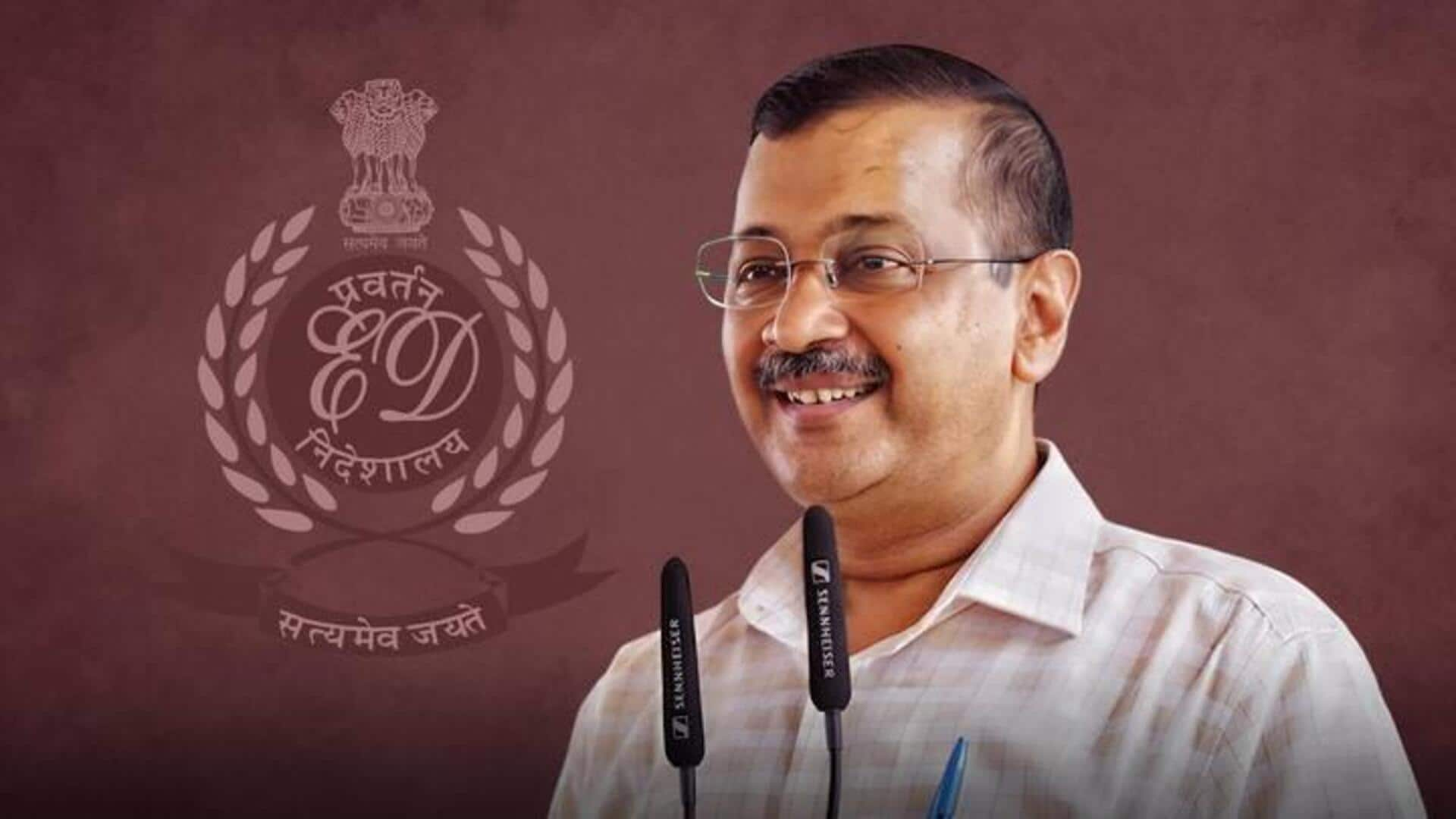
Delhi court denies stay on ED summons for CM Kejriwal
What's the story
A Delhi court has denied a request to halt two orders summoning Delhi Chief Minister Arvind Kejriwal in complaints filed by the Enforcement Directorate.
The complaints are linked to his alleged non-compliance with summonses in a purported liquor policy scam.
Special CBI Judge Rakesh Syal of Rouse Avenue Courts dismissed Kejriwal's temporary stay request in his petitions against the summons, instructing him to appear in person in court.
Kejriwal's revision petitions are now scheduled for a hearing on March 30.
Context
Why does this story matter?
Kejriwal is contesting two orders from the Additional Chief Metropolitan Magistrate (ACMM) court that summoned him in criminal complaints filed by the ED.
The ACMM court had ordered Kejriwal to appear before it on March 16.
To date, he has received eight summonses in the case and has avoided them, arguing they are unlawful.
To recall, Aam Aadmi Party leaders Manish Sisodia and Sanjay Singh have been arrested in the "money laundering" case and are currently in judicial custody.
Statement
Kejriwal accuses BJP of targeting opposition parties through ED
In a charge sheet filed on December 2, ED alleged that AAP used Rs. 45 crore in kickbacks from the policy for its Goa assembly elections campaign in 2022.
Last week, Kejriwal accused the Bharatiya Janata Party-led Centre of targeting opposition parties.
"Those who refuse to join BJP are sent to jail," he added.
The ED, however, has said it wants to record Kejriwal's statements on issues such as excise policy formulation, meetings held, and bribery allegations.
Twitter Post
You can read Kejriwal's full statement here
ED और मोदी सरकार की ये सच्चाई है। कैसे लोगों को ED से परेशान करवा के बीजेपी में शामिल किया जाता है। ED की रेड करवा के पूछा जाता है - कहाँ जाओगे - बीजेपी या जेल? जो बीजेपी जाने से मना कर देते हैं, उन्हें जेल भेज देते हैं। आज अगर सत्येंद्र जैन, मनीष सिसोदिया और संजय सिंह अगर बीजेपी… https://t.co/Xe1frCexDs
— Arvind Kejriwal (@ArvindKejriwal) March 6, 2024
Background
What is the Delhi Excise Policy case
In November 2021, the Delhi government implemented the revamped liquor excise policy for 2021-22.
However, it decided to scrap it less than a year later amid extensive corruption allegations.
Central investigation agencies alleged that wholesaler profit margins were artificially boosted to 12% from 5%.
It also claimed that the regulation promoted cartelization and benefited those ineligible for liquor licenses for economic gain.
Meanwhile, the Kerjiwal-led Delhi administration denied the charges and said the strategy would have increased revenue.